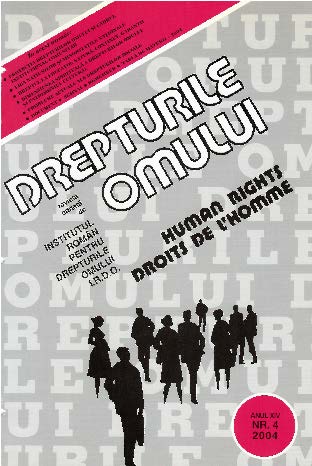Repere și perspective europene – un cadru instituțional comunitar pentru o protecție eficientă a drepturilor fundamentale
European guide marks and prospects - a community institutional framework for an effective protection of the fundamental rights
Author(s): Irina Zlătescu, Radu C. DemetrescuSubject(s): Human Rights and Humanitarian Law, EU-Legislation
Published by: Institutul Român pentru Drepturile Omului
Keywords: European Union; Council of Europe; human rights;
Summary/Abstract: The enlargement of 2004, which brought together eight Central European countries as well as the Mediterranean countries Cyprus and Malta, is the vastest and most ambitious in the history of the European Union. As a result of this accession, the number of the Member States increased from 15 to 25, the Union thus joining together more than 450 million inhabitants, that is, more than the United States and Russia taken together. The provisions of the Charter of Fundamental Rights will be bounding, without implying an extension of the Union's competencies. The Charter of Fundamental Rights is based on the constitutional traditions and the international commitments that are common to the Member States, the European Convention for the Protection of Human Rights and Fundamental Freedoms, the social charters adopted by the Union and the Council of Europe, the jurisprudence of the European Union's Court of Justice and the jurisprudence of the European Court of Human Rights. The contents of the Charter is vaster than that of the European Convention for the Protection of Human Rights and Fundamental Freedoms, signed in Rome on 4 November 1950 and ratified by all the Union's States. While the Convention limits itself to the civil and political rights, the Charter of Fundamental Rights covers the other issues as well, such as the right to good governance, the social rights of workers, the protection of personal assets or bioethics. In the wording of the present treaties, the Union did not have the competence to accede the European Convention on Human Rights. Instead, the Constitution explicitly provides for the Union's competence and establishes that the Union commits itself to accede the European Convention.
Journal: Drepturile omului
- Issue Year: 2004
- Issue No: 4
- Page Range: 3-11
- Page Count: 9
- Language: Romanian

